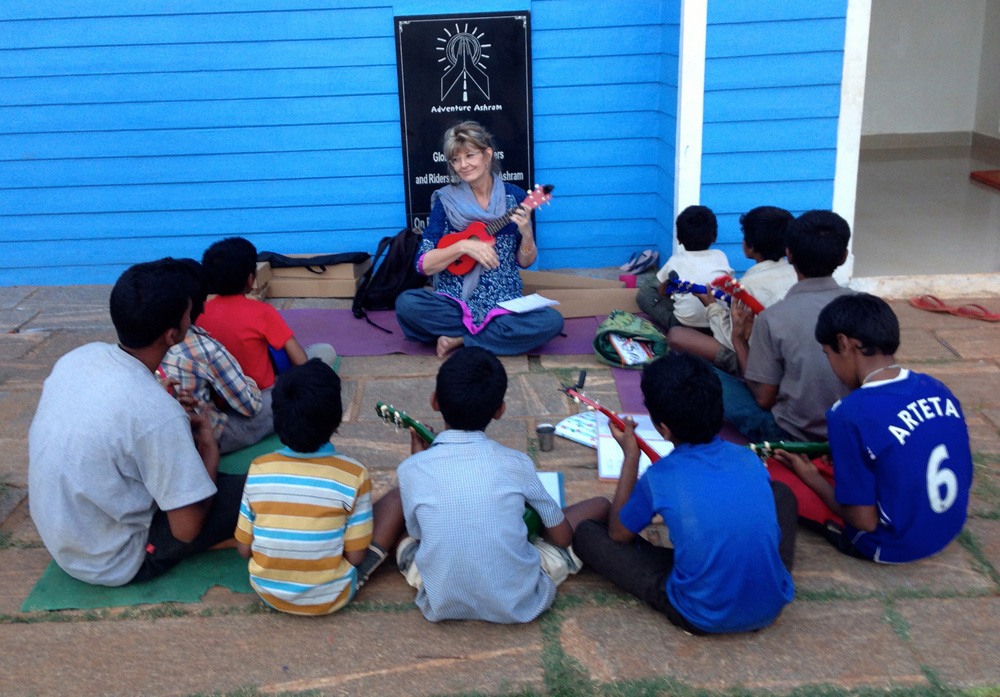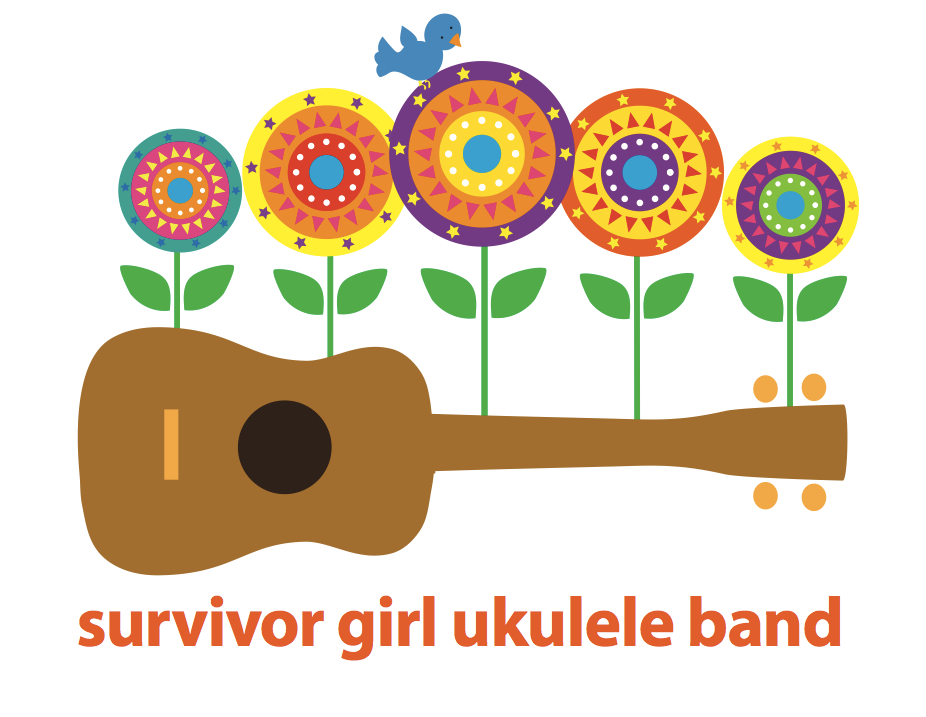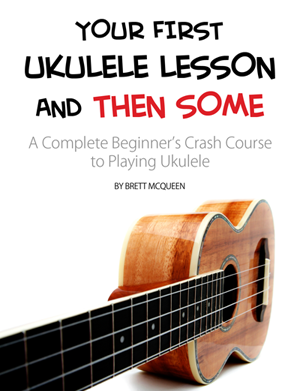Today, I bring to you a remarkable story from Laurie Kallevig of the Survivor Girl Ukulele Band project.
Survivor Girl Ukulele Band is using the healing power of music and love through the ukulele to bring restoration and hope to survivors of human trafficking in Kolkata, India.
Survivor girls–girls who have been rescued from forced prostitution–are able to come and be apart of Survivor Girl Ukulele Band and learn how to play the ukulele, finding confidence, joy, and freedom.
I had a chance to speak with Laurie and learn more about this inspiring little ukulele band.
Brett: What is Survivor Girl Ukulele Band?
Laurie Kallevig: Survivor Girl Ukulele Band (SGUB) is a project in India bringing restoration and hope to survivors of human trafficking through the healing power of music and love.
With twenty-four colorful ukuleles in tow and heaps of love and support from friends and family, I travel to India, and then I teach survivor girls — girls who have been rescued from forced prostitution — how to play ukulele! It’s wild, it’s fun, it’s therapeutic, and it’s creative — and it also hopefully teaches the girls how to learn.
My students all have their individual stories, but these girls and young women have been through much trauma, and it’s not uncommon for them to believe that they are stupid, that they can’t learn, and that they are worthless. Those beliefs are reinforced by the fact that they have had very little education, and they don’t really know how to learn. Often they have little confidence in trying anything new because they are convinced beforehand that they can’t do it. So when they do catch something they thought they couldn’t do, wow! Their smiles light up the room!
Survivor Girl Ukulele Band 2015 — Kolkata! has made history: two talented students are now part-time employees of SGUB as “chota teachers” (little teachers), and they help teach the new beginner classes. And each class is working on songs to perform for a crowd of 250 people on Sanlaap’s 30th anniversary on June 30th, 2015!
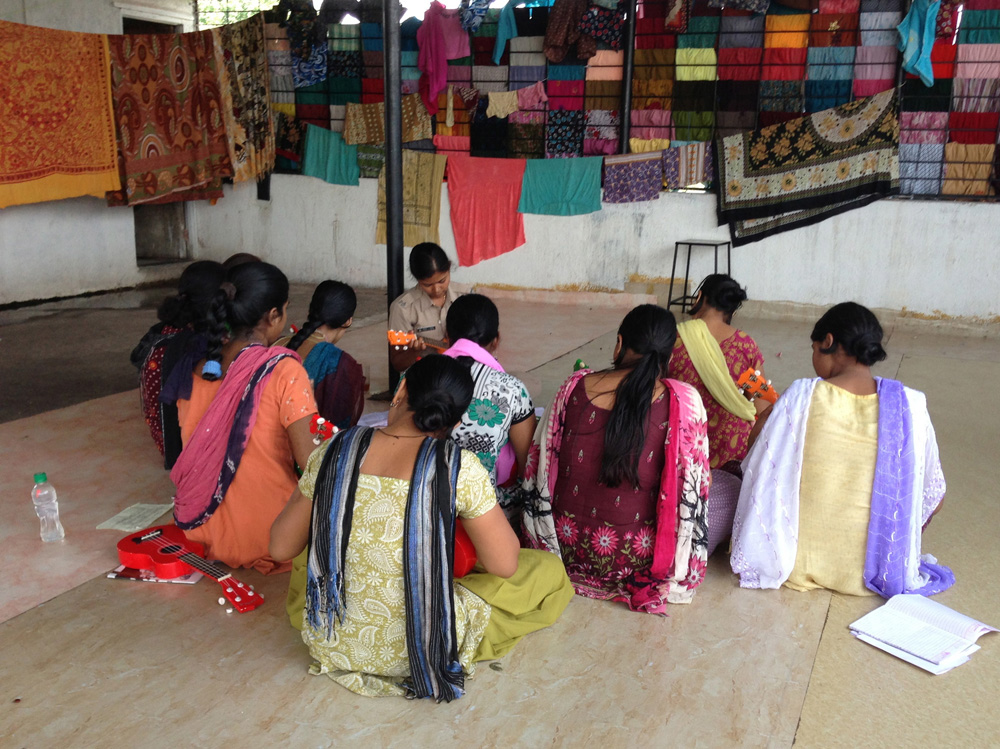
Brett: What inspired you to work in India?
Laurie: Years ago I was traveling in India, Nepal, and Tibet, and it was in Tibet I learned from a fellow traveler that each year thousands of girls are trafficked from Nepal into India — often tricked with promises of a good job — and then sold in to brothels.
This bothered me for years, but I felt I had nothing to offer. Then one night I woke up with the words “rescue and restore” in my head. And I knew it was time to do something, to get involved somehow.
So I came to India and volunteered in the communications department of a number of anti-trafficking organizations. And one day I had the opportunity to go into the field for a training. I brought my guitar and sang “Happy Birthday” and “Twinkle, Twinkle Little Star” with the girls. What a hit! The girls zoomed up to the guitar and asked how it worked and could they try it.
I knew I couldn’t teach girls how to play the guitar — I could barely play it myself! But earlier in the year I had met someone on a plane who had a ukulele. She said, “You can have a lot of fun on a ukulele.” I thought to myself, why not learn how to play the ukulele, get a bunch of ukuleles, and come back to India and form a survivor girl ukulele band?!! And that’s how it all started.

Brett: What is a typical SGUB practice like?
Laurie: At the beginning of class, one of the girls leads and the others repeat these words in Bengali and in English:
I am intelligent. I am brave. I can do this. Lord, please help me. Amen.
This is followed by one minute of silent meditation, and then we jump into playing songs.
One of the first songs they learn is “Twinkle, Twinkle Little Star.” We’re also working on a classic Bengali love song — “Purano Sei Diner Kotha,” as well as “Happy Birthday,” and Pachelbel’s “Canon in D.”
As they progress with a song, I throw in techniques like fingerpicking, hammer-ons and slides.
Most important is that the girls have fun, that they are successful, and that it is a safe and loving environment.
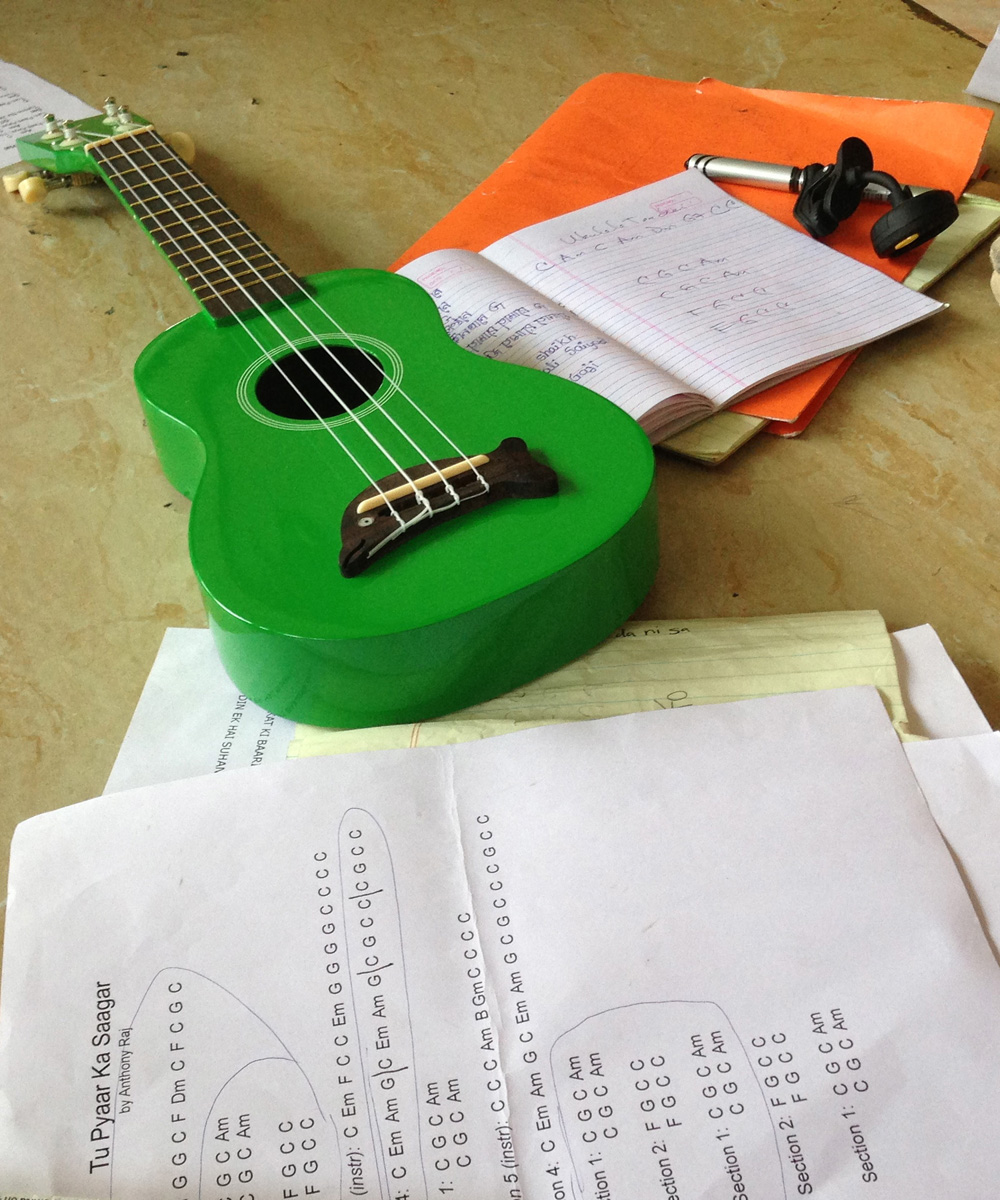
Brett: What is your hope for the girls who play in SGUB?
Laurie: I hope they learn how to learn and continue to learn and grow. I hope they feel loved. I hope they feel joy and freedom when they play. I hope they continue their journey toward wholeness and restoration. And I hope that a good number of students will find dignified, meaningful, and creative employment teaching ukulele through future expansion of SGUB or collaboration with other music projects.
Brett: Any favorite songs the band likes to play?
My friend Ed Tree wrote Survivor Girl Ukulele Band song for the girls, and it captures the essence of what SGUB is all about. The girls love to sing and play it.
Survivor Girl Ukulele Band
If you’re down, we’ll lend you a hand
If you’re lost, we’ll show you a plan
If you’re scared, we will understand
Survivor Girl Ukulele Band
No matter who you are
No matter where you’ve been
The door is always open
We will let you in
There’s a brighter day
There’s another choice
There’s a melody
Waiting for your voice
If you’re down, we’ll lend you a hand
If you’re lost, we’ll show you a plan
If you’re scared, we will understand
Survivor Girl Ukulele Band
See who you can be
See how you can grow
See what life will bring
Blessings overflow
There’s a brighter day
There’s another choice
There’s a melody
Waiting for your voice
If you’re down, we’ll lend you a hand
If you’re lost, we’ll show you a plan
If you’re scared, we will understand
Survivor Girl Ukulele Band
Survivor Girl Ukulele Band
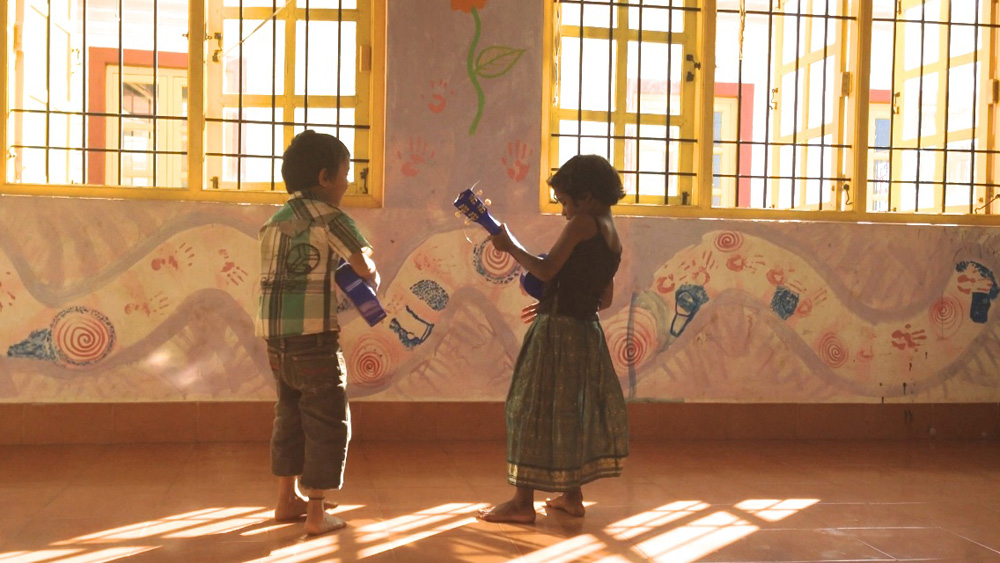
Brett: What’s been the biggest challenge starting SGUB?
Laurie: The biggest challenge for me for the three years I have done Survivor Girl Ukulele Band has been buying a plane ticket and leaving friends and family and car and air-conditioning and kitchen and the USA.
Once I’m in india, however, there’s always so much going on that I don’t have much time to miss the comforts of home. But leaving setting a date and packing up and getting out the door is very difficult!
Brett: What advice would you give to a person wanting to start a ukulele band or club in their community?
Laurie: Local music stores are often great places to hold ukulele jams. Print out some very easy songs in the key of C, set a time and date, advertise it in the local paper, and have a blast! Ukulele is so fun and ukulele people are so friendly. I think that if you start a ukulele band or club or jam it will catch on in no time.
Brett: How can we learn more and be a part of SGUB and the work you’re doing?
Laurie: To learn more about Survivor Girl Ukulele Band project, please visit my website and blog and sign up for the newsletter at sgub.org and workingdraft.me.
If you live in the Los Angeles area, please join us at the next Survivor Girl Ukulele Band benefit (upcoming November 2015–website will have details in the coming months).
If you live in New Zealand, Ukulele Geraldine’s Ukefest in early July 2015 will have a fundraiser for SGUB.
If you are part of a ukulele club, consider hosting a fund-raiser for survivor girl ukulele band project. Or you can be a friend and tell a friend about Survivor Girl Ukulele Band!
